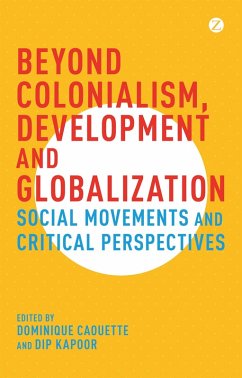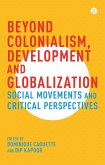Development studies is in a state of flux. A new generation of scholars has come to reject what was once regarded as accepted wisdom, and increasingly regard development and globalization as part of a continuum with colonialism, premised on the same reductionist assumption that progress and growth are objective facts that can be fostered, measured, assessed and controlled. Drawing on a variety of theoretical perspectives and approaches, this book explores the ways in which social movements in the Global South are rejecting Western-centric notions of development and modernization, as well as creating their own alternatives.
By assessing development theories from the perspective of subaltern groups and movements, the contributors posit a new notion of development 'from below', one in which these movements provide new ways of imagining social transformation, and a way out of the 'developmental dead end' that has so far characterized post-development approaches. Beyond Colonialism, Development and Globalization therefore represents a radical break with the prevailing narrative of modernization, and points to a bold new direction for development studies.
By assessing development theories from the perspective of subaltern groups and movements, the contributors posit a new notion of development 'from below', one in which these movements provide new ways of imagining social transformation, and a way out of the 'developmental dead end' that has so far characterized post-development approaches. Beyond Colonialism, Development and Globalization therefore represents a radical break with the prevailing narrative of modernization, and points to a bold new direction for development studies.









